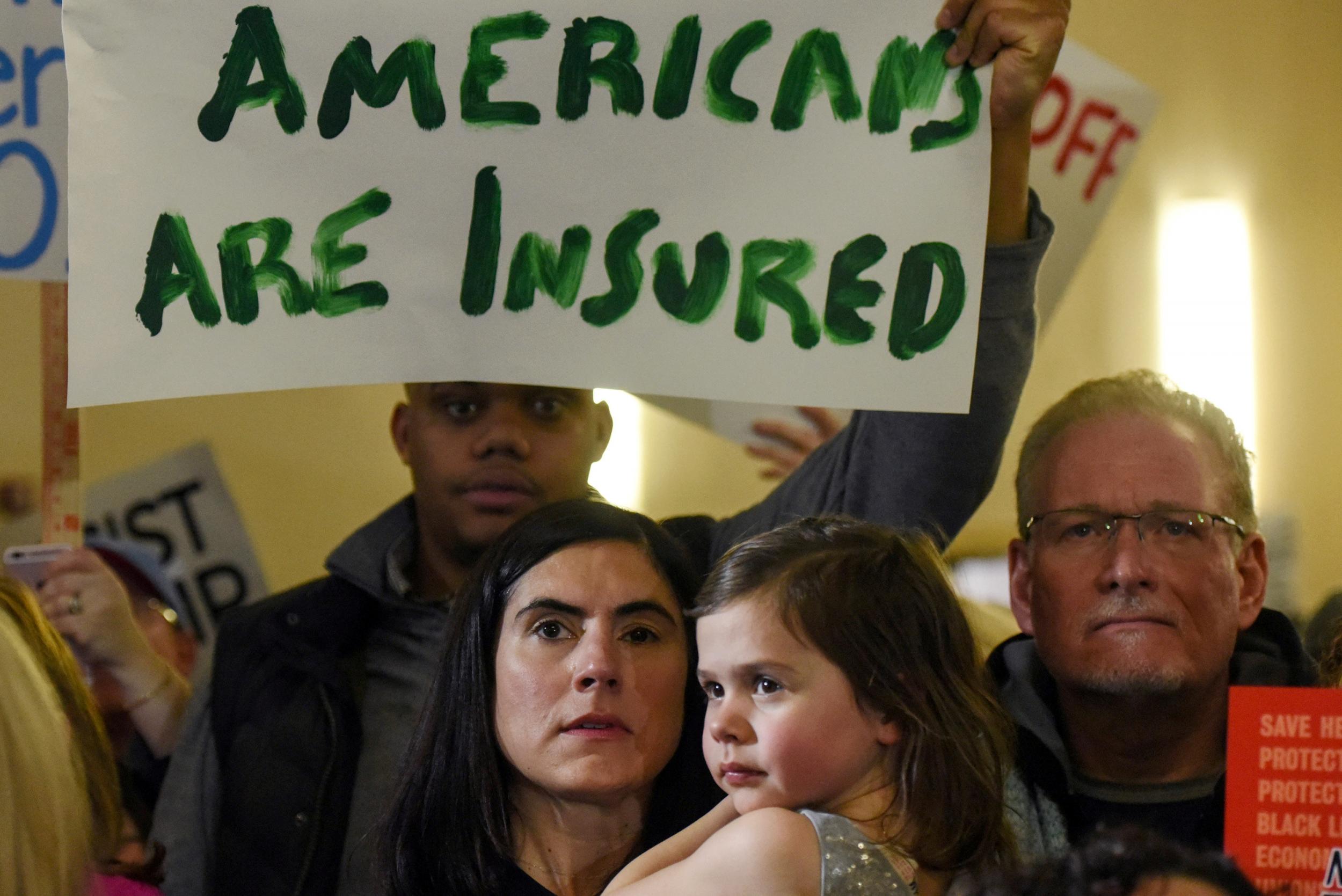Republican governors argue Donald Trump replacing Obamacare will leave millions without health insurance
'Phasing out Medicaid coverage without a viable alternative is counterproductive and unnecessarily puts at risk our ability to treat the drug-addicted, mentally ill and working poor'

Republican governors complain that a GOP proposal to replace former President Barack Obama's healthcare law would force millions of lower-income earners off insurance rolls or stick states with the cost of keeping them covered.
Governors, especially those from political battleground states, were generally cool to the bill put forth in the Republican-controlled US House. Some signalled that they would continue working on their own legislation to compete with the measure introduced Monday.
“We've said all along, 'Work with the governors,' that it should be a governor-led effort and for the Congress to rely on the governors,” Nevada Governor Brian Sandoval said. “Well, they came out with their own bill, which doesn't include anything that the governors have talked about.”
Republican governors lead 33 states, across all regions, and represent states pivotal to President Donald Trump's victory in November, including much of the upper Midwest. Their role in the health care debate could influence the biggest public policy changes this year and help determine the party's future.
At the heart of their criticisms is that the House plan would jeopardise coverage for roughly 11 million people covered through the Affordable Care Act's Medicaid expansion. The law allowed states to expand Medicaid to cover more low-income individuals and their families at costs borne largely by the federal government.
Phasing out the federal supplement for Medicaid would hit hardest in states where governors chose to participate in the expansion, such as Michigan, Nevada and Ohio. The House bill's provision to shift the federal Medicaid commitment to those states would shrink the number of people eligible for coverage and require states to drop people from coverage or risk incurring huge costs rapidly to keep them enrolled.
“Phasing out Medicaid coverage without a viable alternative is counterproductive and unnecessarily puts at risk our ability to treat the drug-addicted, mentally ill and working poor who now have access to a stable source of care,” said Governor John Kasich of Ohio.
Michigan, Nevada and Ohio alone have added a combined 2 million to Medicaid's enrolment since that part of the law took effect in 2014.
The GOP governors expressed some of the same reservations as Democratic governors in states that expanded Medicaid, fretting about higher costs and fewer people covered.

West Virginia Governor Jim Justice, a Democrat, warned against any health measure that kicks residents off Medicaid and leaves them “in the cold.” The state has been carried by Republican presidential nominees for the past five elections and has added 175,000 residents to Medicaid coverage.
Another problem some Republican governors see with the bill is in converting Medicaid coverage from an open-ended federal entitlement to one that operates under a per-capita cap. A cap would not account, for instance, for rapidly rising drug costs, a big part of a state's Medicaid budget. GOP governors have suggested that any change in the law should give them more autonomy to account for such changes.
“I would have liked to have seen more flexibility being given to the states,” Arkansas Governor Asa Hutchinson told reporters. “I'm going to continue to look at that.”
Wisconsin Governor Scott Walker echoed the more muted response from his peers, calling the House bill “an important first step.”
“We will continue working with the Trump administration, the Congress and governors across the country, as we seek a personalised, patient-centred plan that treats people as humans and not like numbers,” he added.
Walker, as chairman of the Republican Governors Association, has been working with governors such as Kasich to draft a proposal that would effectively put states in charge of their Medicaid programmes but require the federal government to continue financing them.
The governors' alternative could become a viable measure in the legislative debate, should it gain Senate sponsorship. The governors working on it have met with senators and staff on the Senate Finance Committee.
Ohio Senator Rob Portman is already sounding some of Kasich's concerns. In a letter sent Monday to Senate Majority Leader Mitch McConnell, Portman wrote that House legislation “does not provide stability and certainty for individuals and families in Medicaid expansion programs or the necessary flexibility for states.”
AP
Join our commenting forum
Join thought-provoking conversations, follow other Independent readers and see their replies
Comments
Bookmark popover
Removed from bookmarks